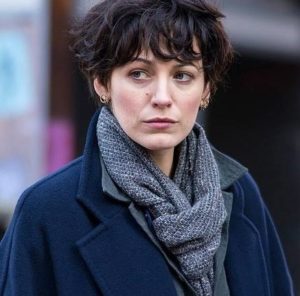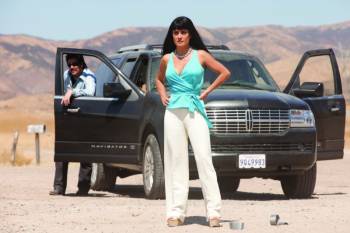The Rhythm Section
Posted on January 30, 2020 at 5:39 pm
C| Lowest Recommended Age: | Mature High Schooler |
| MPAA Rating: | Rated R for violence, sexual content, language throughout, and some drug use |
| Profanity: | Very strong language |
| Alcohol/ Drugs: | Drug use |
| Violence/ Scariness: | Extended very graphic and intense peril and violence, characters injured and killed, terrorism, suicide bomber, guns, knives, chases, explosions, disturbing images |
| Diversity Issues: | None |
| Date Released to Theaters: | January 31, 2020 |
| Date Released to DVD: | April 27, 2020 |

What is this weird fascination with stories of men taking lost, pathetic, but lissome young women and turning them into spies and assassins? A century ago, we had Henry Higgins teaching a flower girl to speak like a duchess. Now, we have “La Femme Nikita” and its American remake “Point of No Return,” its Hong Kong version, “Black Cat,” its Italian version, “Sexy Killer,” its two television series, the Jennifer Lawrence film “Red Sparrow,” the Jennifer Garner series “Alias,” Luc Besson’s 2019 flop “Anna,” and the father/daughter version — movie and television series — “Hanna.” When that training includes masquerading as a prostitute so we can see her in her skivvies, it becomes clear how outdated this set-up has become.
And now we have The Rhythm Section, with Stephanie Patrick, played by Blake Lively in a series of bad wigs, as the brilliant Oxford student turned narcotic drug abuser and prostitute after the death of her family in a plane crash three years before this movie begins. I should say played by a series of bad wigs with Blake Lively in a supporting role, because this very talented actress is given little to do but look sullen, sullen and a little afraid, and sullen and a little determined. Please add “A Simple Favor” to your Netflix queue if you have not seen it yet to get a look at how good she can be.
The people behind this film are the producers of the Bond films, and they are clearly trying to create a distaff franchise, based on the books by Mark Burnell, who also wrote the screenplay. Unfortunately, it is weak on character and plot and fails to have any of the ingredients that make the Bond movies work. While there are stops in many cities, identified on screen but otherwise mostly interchangeable, it does not have the glamor, the urgency, or the fun of seeing all the gizmos and how they get deployed. Revenge is so reliable and relatable a motive that it is almost impossible to get wrong in a movie, but even that cannot bring this story to life. It’s supposed to be all you go girl! with a badass female lead. But, sigh, it’s more male gaze again, with one of her disguises being high-end call girl in skimpy skivvies and somehow a shocking tragedy inexplicably inspires her to jump into bed with someone she barely knows.
A journalist named Proctor (Raza Jaffrey) finds Stephanie, a drugged-out prostitute constantly replaying images of the last time she saw her parents and brother and sister, and the voicemail message her mother left her before getting on the doomed plane. He says he has information showing that it was not an accident; it was a terrorist bomb, and he knows how to find the man who built the bomb. She initially refuses to have anything to do with him, but then goes to his apartment, where he has one of those movie-friendly rooms with walls covered with clippings and photos. He unwisely leaves her there, giving her money and keys, and she unwisely tips off the bomber, and soon Proctor is dead, on the floor in a pool of blood.
Stephanie follows a clue she got from the photos on the wall to track down the Proctor’s source, a former spy turned rogue played by Jude Law. No cold turkey montage (“I’m a user, not an addict,” she explains), so straight into the training montage, turning Stephanie into a lean, mean, fighting machine in a matter of months, while we flashback to Jude Law doing the same thing for Captain Marvel, only better.
The action and characters would have to be so much better to persuade us to miss the howling plot holes and tinge of misogyny — really, she has to be a prostitute? Luckily for the movie, we never invest enough in it to care.
Parents should know that this movie includes extended and very graphic peril and violence, murders, chases, explosions, terrorism, knives, guns, bombs, poison, characters injured and killed, disturbing images, very strong language, prostitution, and drugs.
Family discussion: What were Stephanie’s most significant assets in accomplishing her goals? Why did the reporter want to contact her? What will she do next?
If you like this, try: “La Femme Nikita” and “Hanna” (movie and television series)



